Property Access
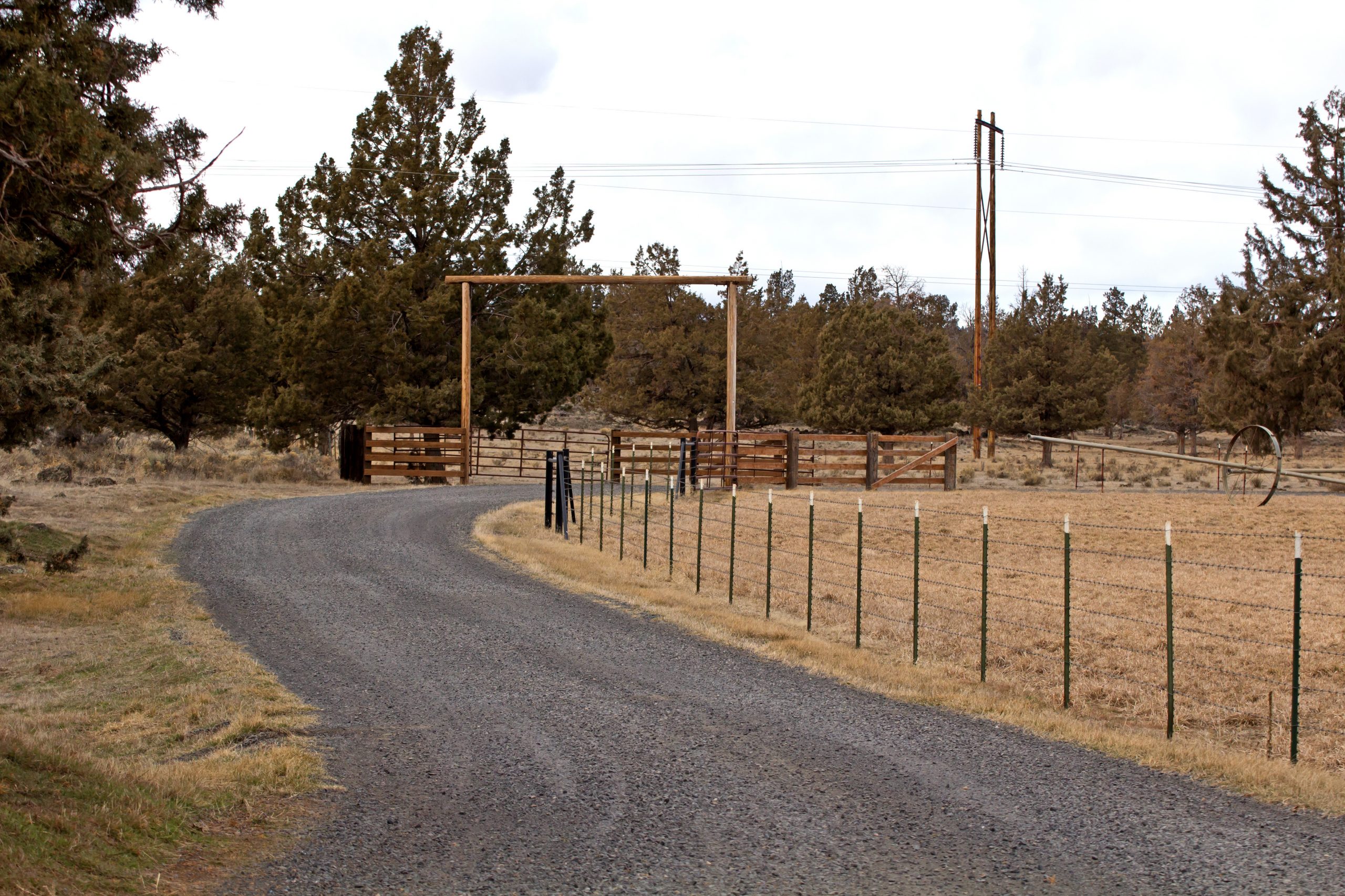
Is your property accessible?
Many parcels in Montrose County are not accessed directly from a County road. Ensure that easements are in place to access your property and that you know who is responsible for maintaining the private access.
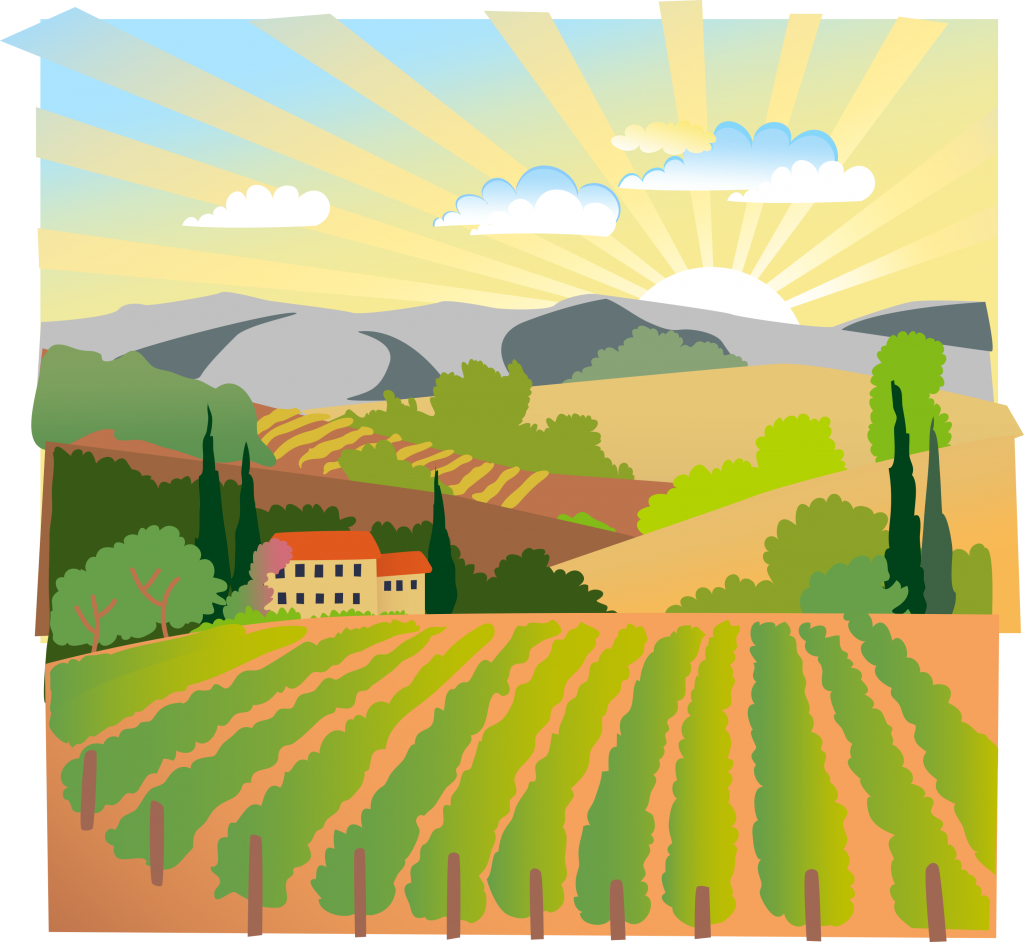
Access to your property should not be taken for granted. It is wise to investigate the access to your property by obtaining legal advice or by contacting the County Building and Planning Department. Also consider what type of road will service your property.
Not all public roads are County roads. There are many roads in Montrose County that provide public access to and across public land that are not County roads and are not maintained by the County. Many of these roads are not maintained by anyone. Public access roads often cross private property and venturing off the roadway is trespassing. If you are planning to access your property across public lands you should contact the appropriate public lands management agency and make sure you understand the full rights and restrictions of your access.
Find out what level of road maintenance is provided to your property. Depending on where your property is you may not have year-round maintenance. County snow removal priorities mean that low volume roads will not be cleared of snow for minor snowfall events and may not be plowed for several days after major snowstorms. Some County roads do not get plowed and are on the County’s “No Winter Maintenance” list. The County’s “Snow Removal Policy” with an interactive map of priority plow routes and the “No County Winter Maintenance” roads are on the County website. Private snow removal on a County road that does not receive winter maintenance will require a Private Winter Maintenance Agreement with the County. This agreement should be done through the Road and Bridge Department in August.
Montrose County has approximately 1,400 miles of roads. Approximately 300 miles are paved, 600 are gravel and the remaining are native surfaced, meaning dirt. Gravel and dirt roads are often dusty and may be rutted or have washboards. Gravel roads, no matter how often bladed, will not provide the same kind of surface expected of paved roads. Native surfaced roads may require a high clearance 4-wheel drive vehicle and may be impassable when wet, even with an all-wheel drive or 4-wheel drive vehicle.
Magnesium chloride is a chemical treatment used to keep the dust to a minimum and extend the life of the gravel road. Your road may or may not get treatment depending on the topography of the road and the traffic count. Check with our County Road and Bridge Department for clarification. The County has a private pay program whereby residents can purchase the magnesium chloride and the County staff will provide the equipment and labor to apply the material. If you want to participate in the private pay program, please call the Road and Bridge Department in early spring.
Before constructing any access to your property from a County road, a permit is required from the County Road and Bridge Department.
Property Use & Enjoyment
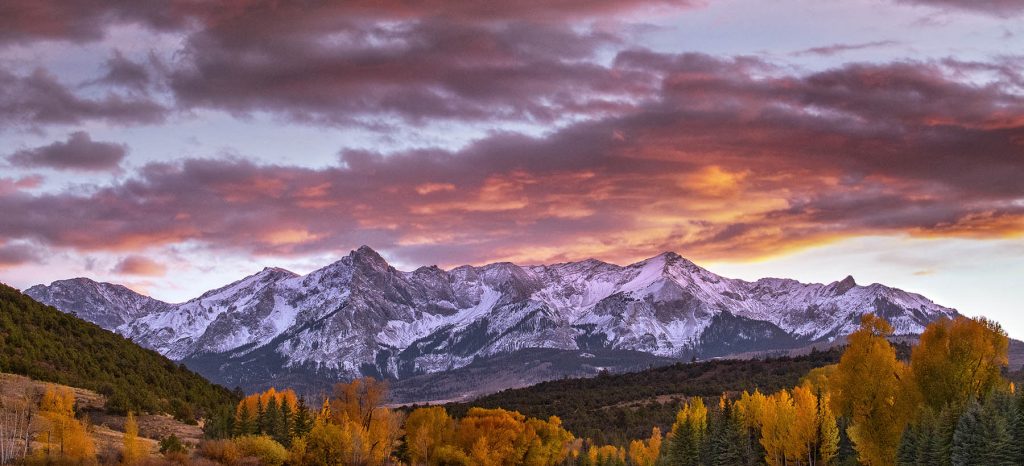
Pets always need to be kept under control
Pets always need to be kept under control. Montrose County does enforce a “Dog at Large Ordinance”. Pets that are allowed to run free may become a nuisance to ranchers, livestock and wildlife. Stockmen may shoot animals which are threatening the safety of their livestock. The well-being of your pet may also be at risk from a variety of other hazards even though it does not stray.

There are many issues that may affect the use and enjoyment of your property. It is important to research these before you purchase land.
Not all parcels are suitable for building or development. Check with the Montrose County Building and Planning Department to discuss zoning classification and suitability of development.
Soil stability varies widely depending on the area. A geotechnical engineer can perform a test to determine if collapsing or expanding soil will be a problem. A geotechnical report will be required by the Building and Planning Department before building any inhabitable structures.
Some easements on your property may require you to allow construction of roads, irrigation ditches, power, water, and/or sewer lines around and across your land. This may restrict development or building options. Some easements may not be recorded so careful and thorough research in necessary.
It is very important to know what minerals and natural resources (such as gravel) may be located under your land and who has the ownership rights to those resources. Owners of oil, gas, and mineral rights may have the right to change the surface characteristics in order to extract the resource.
Some rural land in Montrose County can be used for mining—most often for gravel. However, a special review by the Montrose County Building and Planning Department and the Board of County Commissioners is usually required. Be aware that adjacent mining operations and gravel pits may be able to expand. Reference the Montrose County Master Plan to see locations where gravel resources may exist.
Fences that separate properties may not be on the actual property line. A survey of the property is the only way to confirm the location of the legal property boundaries.
You may be provided with a legal description or survey plat of your property. Some discrepancies do exist and you should not assume that the description or plat is accurate unless the land has been surveyed recently and the survey markers can be found.
Subdivisions and planned developments may have covenants and/or a Home Owner Associations (HOA). Please obtain a copy of the HOA bylaws or covenants so you are aware of the rules and restrictions tied your property. Be aware that Montrose County does not enforce compliance for covenants or HOA regulations.
We are a growing and expanding community and therefore neighboring and surrounding properties may not always have the same use. You should check with the Montrose County Building and Planning Department to find out how neighboring properties are zoned and to see what future developments may be in the planning stages.
Scenic vistas are often of special concern to property owners dues to the spectacular views available in many areas of the County. Views are not protected by zoning or subdivision regulations in Montrose County. The preservation of critical views, view sheds, and ridge lines are typically a property owner’s responsibility.
Irrigation water may or may not be critical to the use and enjoyment of rural property. Not all land has irrigation water rights so make sure you know and understand what water rights come with the property and how they work.
Drinking Water

Don’t take your drinking water for granted!

Don’t take your drinking water for granted.
Domestic treated water (drinking water) is provided by several different water providers within the County and is available to most properties in the Uncompahgre Valley. Access to water service and tap fees vary among water providers, so before you purchase property investigate which water provider serves your area.
If you don’t have access to a supply of treated domestic water, you will need to have an alternative supply, such as a well or a method of hauling and storing water. Permits for wells are granted by the Division IV of the Division of Water Resources headquartered in Montrose. The quality and quantity of well water can vary considerably from location to location and from season to season. It is strongly advised that you research this issue very carefully.
A well permit may be issued for “in-house use only,” which means you cannot use the well water outside for irrigation of lawn or landscaping. If you have at least 35 acres, you may obtain a well permit for “domestic” use, which includes in-house use for up to three dwellings on the property, as well as one acre of irrigation for landscaping and limited livestock. If you intend to use a well as a source of water, check with the Division IV Engineer on any limitations. There is also information on the Division of Water Resources website.
Irrigation Water

Learn more about prior appropriation
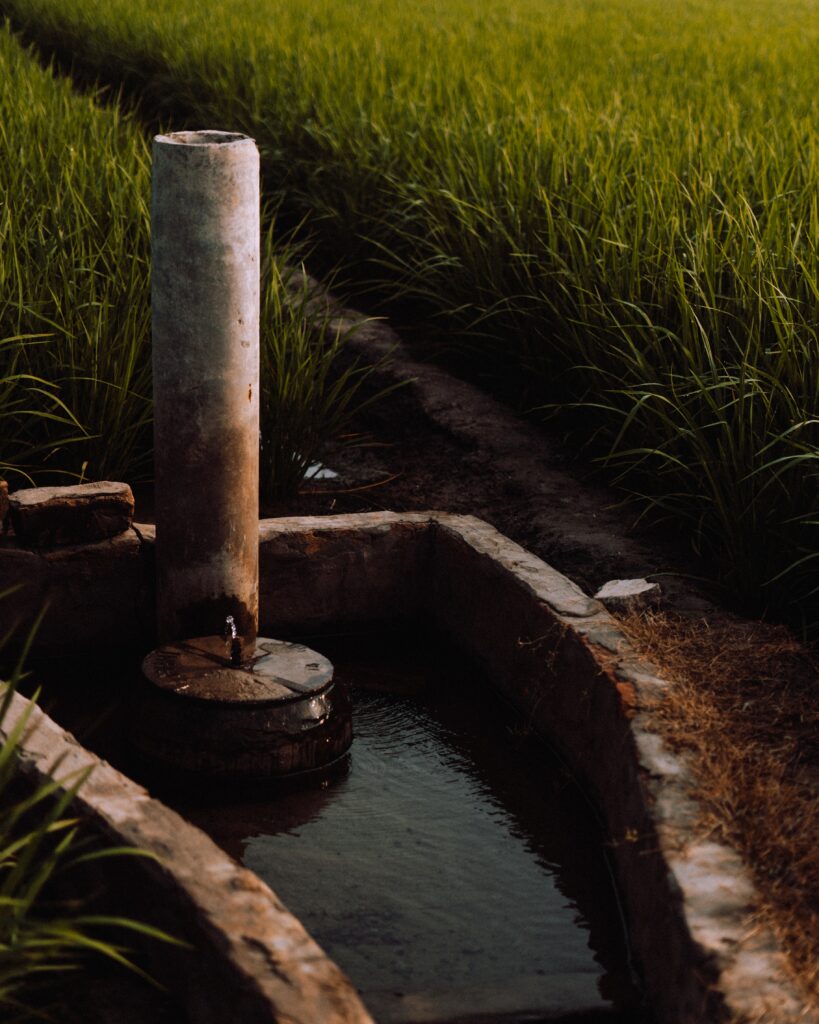
In the late 1800’s enterprising farmers turned our arid land into productive farm ground by constructing ditches that diverted water from surrounding rivers and began a system for water allocation. The system of “prior appropriation” means that water is diverted and used for beneficial purposes according to the rule of “first in time, first in right.” Water is allocated for use for all purposes, including municipal, domestic, agriculture, and industrial/commercial according to this doctrine.
The land in the area of the County near the City of Montrose that does have irrigation water rights may have Uncompahgre Valley Water Users Association (UVWUA) rights. You will need to check with UVWUA as to what rights may come with your property. Some property may have other decreed water rights, and their use is determined by a water court decree. In times of water shortage, Colorado employs a “prior appropriated” system, so that the most senior water rights can continue to divert, in order of priority, when more junior water rights may be curtailed. More information is available from the Colorado Division of Water Resources website or from the Division IV of the Division of Water Resources Engineer’s office in Montrose.
If there is a water ditch running across your property, you cannot move it or enclose it in a pipe without permission of the ditch company. And, while it may cross your property, you may not have water rights associated with that ditch. You cannot simply pump water out of a ditch without the right to do so.
All water structures (ditches and pipelines) have an implied (unrecorded) easement which authorizes the owner of the water to have reasonable access to maintain and operate the water structure. This easement is limited to those operations only; it is not a general right of access.
Services
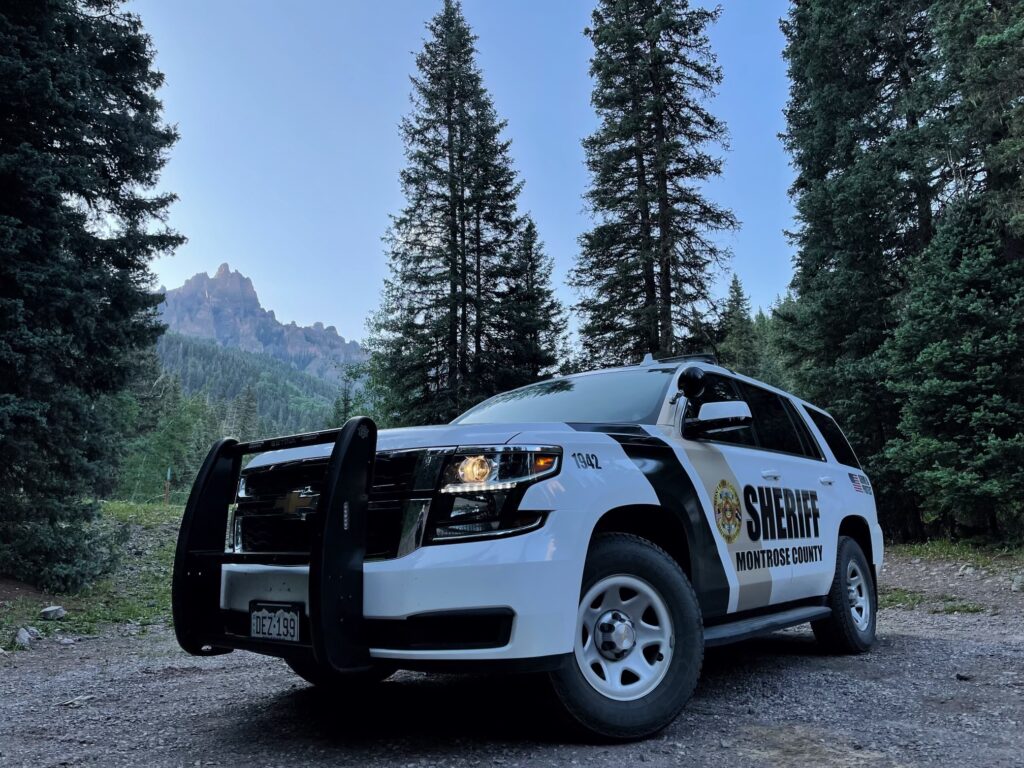
Emergency Services
Should you need emergency services (Sheriff, fire, ambulance etc.), it is available, but consider that the response time may be longer.

Gas, electric, sewer, internet, telephone, cable TV, trash and other services are provided by different entities within the county. Be sure to check with the various companies on availability and cost of these services.
Montrose County is experiencing an increase demand for internet coverage. More and more people are working remotely which intensifies the need for high speed access to the internet. Be aware that coverage can be limited. Providers are working diligently as funds become available to remedy this matter, however, should this be a need, you may want to check into the best opportunities for high speed access.
Be sure to check with the Postmaster concerning mail delivery in your area. Mail delivery is not available to all areas of the county. Other items to check on are newspaper, parcel, and overnight package delivery.
Sewer service is provided by municipalities or sewer districts, normally in close proximity to city boundaries. Check the availability in your location.
If sewer service is not available, you will need an approved Individual Sewage Disposal System (ISDS) permitted by the County. The type of soil that you have for a leach field will be important in determining the cost and function of your system. Where there is an existing system, your septic tank will need to be pumped and inspected by a competent contractor at least every 5 to 7 years.
The availability and cost of electric and natural gas service should also be checked into. It is important to determine the proximity of electrical distribution lines and natural gas mains before you commit to a construction project.
If it is necessary to cross public lands or property owned by others in order to bring utility service to our property, make sure that the proper easements are in place or that easements can be obtained. Having public access or a County road to your property does not guarantee that there is a right-of-way or an easement for utilities.
Single phase electric power is the configuration most commonly available. If you have special power requirements such as three phase, check the availability. Also inform the power company of the size of your power requirements.
Although most rural areas of the County are not wired for cable TV, many areas can receive broadcast TV signals providing Denver and Grand Junction stations. Satellite systems are also available by a variety of providers.
Transportation of children to school is another consideration. In general, school buses travel only on maintained county roads, and do not travel inside subdivisions. You may need to drive your children to the nearest county road so they can board the school bus. In some outlying areas school bus transportation is not available. Check with the local school district for more information on bus routes.
Hazards
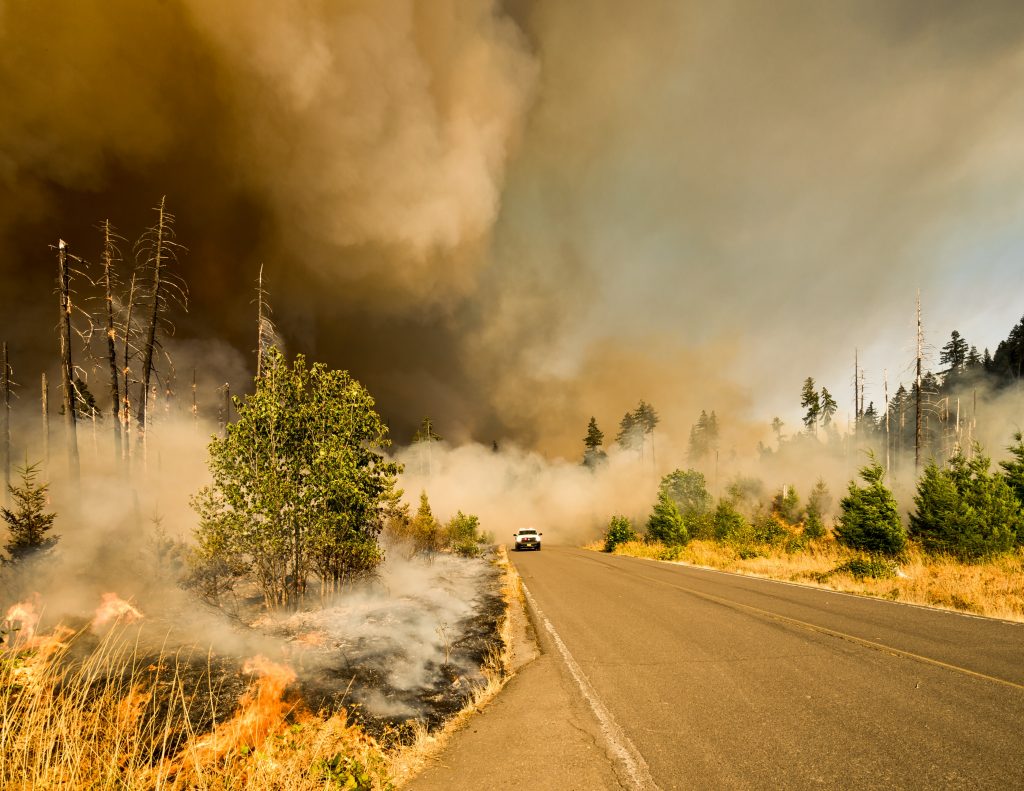
Fires & Floods
Fire danger exists on forested lots, open range, and fields. Due to steep topography, flash floods and mud flows can occur during or after high intensity rain events.
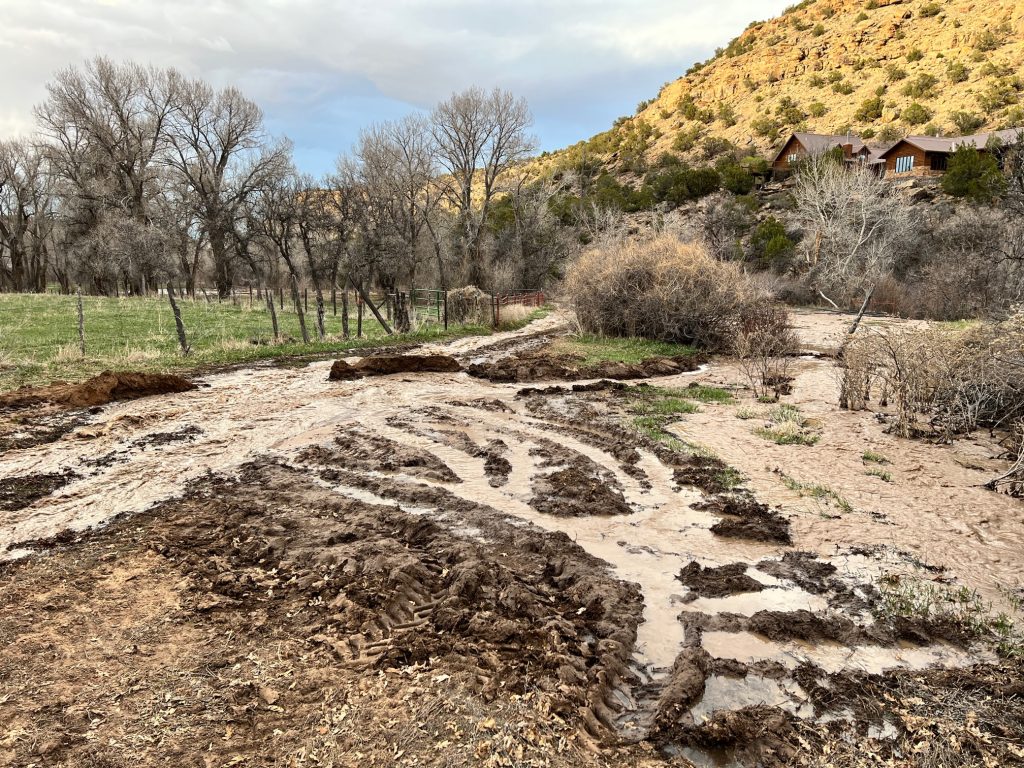
Trees are beautiful and useful, but they can be a fire hazard. Fire mitigation should be considered such as clearing vegetation between and around buildings to provide a “defensible perimeter” in the event of fire. Fire danger exists on forested lots, open range, and fields. A fire can quickly get out of control and which may cause you to be responsible for the cost of extinguishing the fire.
North facing slopes rarely see direct sunlight in the winter. There is a possibility that snow and ice will accumulate and not melt throughout the winter. Think carefully as you decide on any improvements or building on the north facing slopes.
The topography of the land can tell you where the water will run in case of heavy precipitation or snow melt. Careful determination should be made about where surface drainage will go when grading on your land.
Due to steep topography, flash floods and mud flows can occur during or after high intensity rain events. Be wise when choosing a construction site and don’t build in an area that could be affected by rain events.
Agriculture
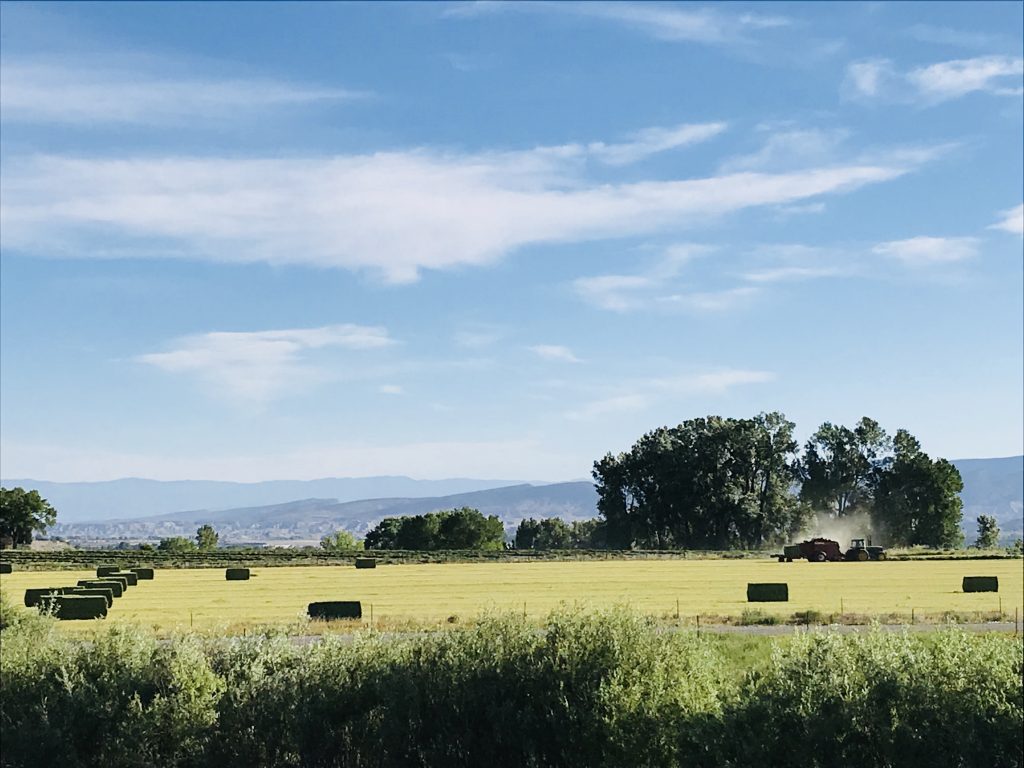
Business
Agriculture is a multi-million dollar business in Montrose County. If you choose to live among the farms and ranches in areas that are zoned Agricultural, your property may be affected by your agri-business neighbors.
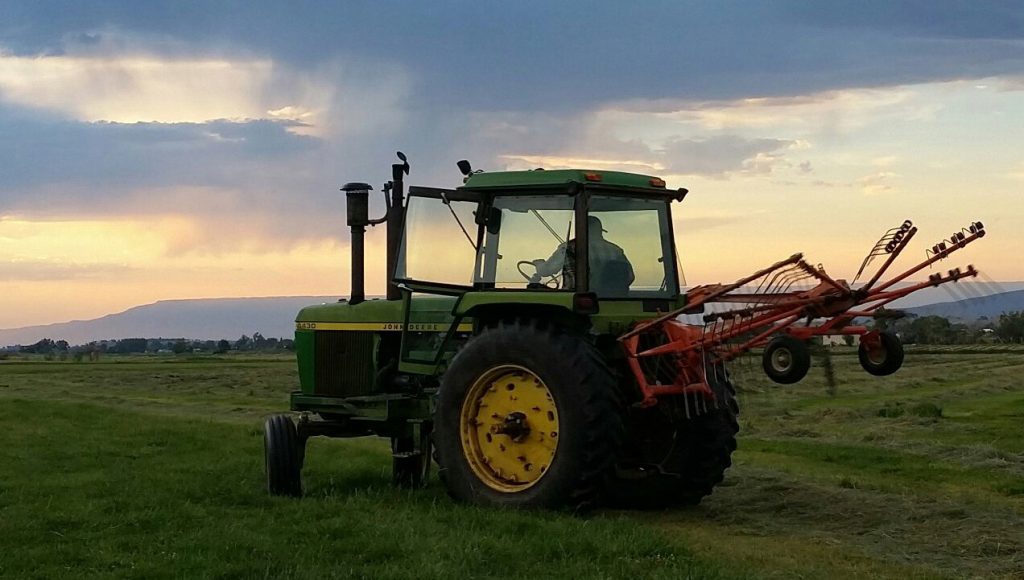
Irrigation Water is a critical component of farming and ranching in Colorado and has allowed agriculture to become an important part of our landscape.
Agriculture is a multi-million dollar business in Montrose County. If you choose to live among the farms and ranches in areas that are zoned Agricultural, your property may be affected by your agri-business neighbors.
Farmers, particularly during planting and harvest time, often work from early in the morning until late at night running farm equipment such as tractors and combines.
Planting, harvesting and other farm operations can cause dust, odor, and noise. This is normally temporary and may even be an interesting process to watch and learn from.
Farmers normally burn their irrigation ditches in the spring to clear them of debris, grass and weeds in preparation for the irrigations season. This normally occurs from January to April creating a smoke odor during that time.
Chemicals are one tool that are often used in growing crops. In many instances, aerial spraying is the required method of application due to the growth stage of the crop or the soil condition. With aerial and ground spraying, there is the potential for minute amounts of the chemical to drift onto neighboring properties. Be aware of this drift potential and contact Montrose County Ecological Services for Information on chemicals commonly used if this is of concern to you.
Feedlots, both large and small and other farm animals such as horses, sheep, cattle, chickens and hogs can have an odor. Enough said-it’s the rural beauty of the area!
Colorado has an open range law which means livestock are not required to be fenced in. Property owners are responsible for fencing out livestock. “Fenced out, not in!”
Livestock are sometimes moved on public roads. This is normally for short distances and it doesn’t take long for the livestock to pass. Code of the West rule of thumb asks that you pull over and allow the livestock to pass. Be patient and enjoy the show! This is the real west!
Owning rural land means knowing how to care for it. Weed control, both noxious and otherwise is the responsibility of the land owner. There are some plants which can be poisonous to livestock. For more information on problem weeds contact Montrose County Ecological Services. They are more than happy to help.
Wildlife

Way of life
Wild animals are a part of the rural lifestyle and education is the best way to avoid danger and/or damage to property and landscaping.

Respect for the environment and wildlife is important. Wild animals are a part of the rural lifestyle and education is the best way to avoid danger and/or damage to property and landscaping. Colorado Parks & Wildlife can provide information on minimizing wildlife problems and dealing with troublesome animals.
Montrose County is home to both threatened and endangered wildlife. Wetlands and other appropriate habitat for wildlife should be left undisturbed. Check with Colorado Parks & Wildlife and the US Fish and Wildlife Service before making changes to areas that may be “home” for these species.
The time-honored tradition of hunting and fishing continues to be a significant part of life in Montrose County. These activities can take place on private property with the permission of the landowner or on public land that may border private property. Consequently, you may find yourself in close proximity to hunters and fishermen. Remember that the safety of you and your property may be in someone else’s hands when the use of firearms comes into the picture.
The continual search for food often brings wild animals into close contact with the human community. Our animal neighbors have no concept of property lines and it is not uncommon to find wildlife in your yard and garden. Montrose County wildlife includes black bears, mountain lions, deer, elk, raccoons, skunks, coyotes, porcupines and others.
Owning rural land means knowing how to care for it. Weed control, both noxious and otherwise is the responsibility of the land owner. There are some plants which can be poisonous to livestock. For more information on problem weeds contact Montrose County Ecological Services. They are more than happy to help.
